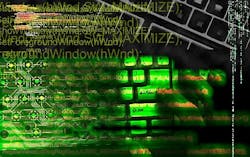Air Force to brief industry 25 Oct. on potential $950 million cyber superiority program
ROME, N.Y., 30 Sept. 2016. U.S. Air Force researchers will brief industry next month in Rome, N.Y., on a potential $950 million new program to develop technologies to improve U.S. military capabilities in cyber security, cyber warfare, and cyber superiority.
Officials of the Air Force Research Laboratory Information Directorate in Rome, N.Y., will outline the upcoming Agile Cyber Technology (ACT) 2 program from 8:30 a.m. to noon on 25 Oct. 2016 in meetings classified secret at the Rome Research Site auditorium, 26 Electronic Parkway, Building 106, in Rome, N.Y.
The ACT 2 program will focus on cyber superiority in seven areas: threat avoidance and cyber defense; full spectrum cyber operations; network exploitation; situation and mission awareness; command and control; modeling, simulation, and war gaming; cyber infrastructure; and mission assurance.
ACT 2 work will involve technology prototypes; ways for users to acquire limited pieces of cyber technologies for evaluation and potential product introductions. The job will involve rapid research and development, prototyping, demonstration, scenario development, experimentation, integration, testing, technical installation and support, transition, and sustainment.
A formal solicitation for the ACT 2 program is expected by 1 Dec. 2006. Several companies most likely will be involved in the five-year program, which will have contracts and task orders worth as much as $950 million.
Related: Navy cyber security information project involves seven companies and as much as $1 billion
The ACT 2 program is a follow-on to the original Agile Cyber Technology (ACT) program begin in 2011 to develop new information security technologies to safeguard the nation's military and other national-security computer systems from cyber attack.
The ACT program concentrated on cyber security technology for threat avoidance and cyber defense; full spectrum cyber operations; network exploitation; situation and mission awareness; command and control; modeling, simulation, and war-gaming; cyber infrastructure; and mission assurance.
The original $300 million ACT program contractors included Assured Information Security Inc. in Rome, N.Y.; Global InfoTek Inc. in Reston, Va.; Radiance Technologies Inc. in Huntsville, Ala.; CACI Inc. in Chantilly, Va.; Exelis Inc. in Herndon, Va.; and L-3 Services Inc. in Reston, Va. The original ACT program is winding up this year.
Companies attending the 25 Oct. ACT 2 industry briefings must have security clearances at the U.S. secret level or higher. Those interested in attending must register no later than 18 Oct. 2016.
Related: Cyber warfare ushers in 5th dimension of human conflict
Register by sending a plain text email to the Air Force's Tanya Macrina at [email protected] with the prospective attendee's name, company name and CAGE code, contact phone number, email address, and driver's license number and state.
The briefings are to provide interested companies with an overview of the ACT 2 contract, promote an early exchange of information, and provide an opportunity for government and industry to gather information. Meetings will include a general session and 30-minute private appointments from 8 a.m. to 4 p.m. on 26 to 28 Oct. 2016.
For questions or concerns contact the Air Force's Thomas Parisi by phone at 315-330-4472 or by email at [email protected]. Also contact Tanya Macrina by phone at 315-330-4715 or by email at [email protected].
More information is online at https://www.fbo.gov/spg/USAF/AFMC/AFRLRRS/INDUSTRY_DAY_ACT_2/listing.html.
Learn more: search the Aerospace & Defense Buyer's Guide for companies, new products, press releases, and videos

